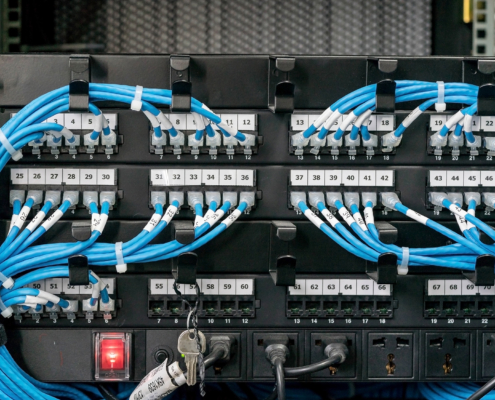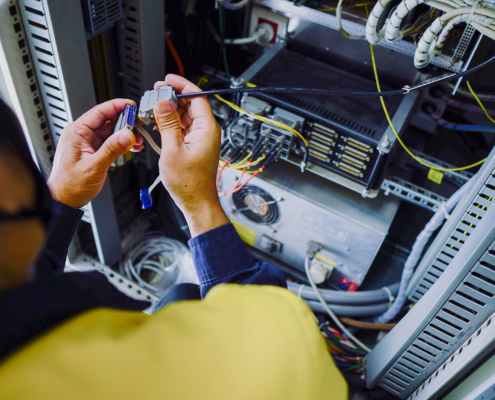 https://ringandping.com/wp-content/uploads/2025/07/cables-in-hands-close-up-view-of-man-against-back-2025-08-11-08-35-50-utc-scaled.jpg17072560Abstrakt Marketing/wp-content/uploads/2024/05/ringandping_logo.svgAbstrakt Marketing2025-07-28 07:41:112025-08-29 01:30:05How Warehouse Cabling Problems Can Disrupt Your Operations
https://ringandping.com/wp-content/uploads/2025/07/cables-in-hands-close-up-view-of-man-against-back-2025-08-11-08-35-50-utc-scaled.jpg17072560Abstrakt Marketing/wp-content/uploads/2024/05/ringandping_logo.svgAbstrakt Marketing2025-07-28 07:41:112025-08-29 01:30:05How Warehouse Cabling Problems Can Disrupt Your OperationsThe closed-circuit television camera (CCTV) industry is buzzing with talk of Internet Protocol (IP) camera takeover, with many speculating about an imminent end of analog cameras. Video cameras – either analogue or digital – produce images or recordings for surveillance purposes. Analogue video cameras send analogue signals and digital cameras send digital signals to a storage device such as a laptop computer, desktop computer, DVR, NVR or video tape recorder. Undoubtedly, the industry is shifting towards IP or ‘network’ cameras – mainly because they offer high definition megapixel images. However, analog CCTV cameras still provide good reliability and lower cost. In my view, both IP and analog cameras have their appropriate place in the market – depending on the intended use in a particular business. If you are considering whether to use analog or IP cameras, you need to know the difference between the two. It is important for you to understand the two technologies, and the opportunities they offer your business. Do you need a new or upgraded surveillance system for your business? Are you thinking about shifting from analogue to IP camera systems? If so, we would be pleased to have a chat with you about your surveillance requirements, and recommend the best option for you. Contact us now at (714) 617-4025 for a free, no obligations quote.
Share This Post
More Like This
 https://ringandping.com/wp-content/uploads/2025/07/cables-in-hands-close-up-view-of-man-against-back-2025-08-11-08-35-50-utc-scaled.jpg17072560Abstrakt Marketing/wp-content/uploads/2024/05/ringandping_logo.svgAbstrakt Marketing2025-07-28 07:41:112025-08-29 01:30:05How Warehouse Cabling Problems Can Disrupt Your Operations
https://ringandping.com/wp-content/uploads/2025/07/cables-in-hands-close-up-view-of-man-against-back-2025-08-11-08-35-50-utc-scaled.jpg17072560Abstrakt Marketing/wp-content/uploads/2024/05/ringandping_logo.svgAbstrakt Marketing2025-07-28 07:41:112025-08-29 01:30:05How Warehouse Cabling Problems Can Disrupt Your Operations
5 Ways Your Business Can Benefit From Improved Warehouse Cabling in Orange County

The Top LA Warehouse Network Cabling Challenges

Common Warehouse Network Issues and How to Avoid Them at Your Facility

Why Reliable Network Cabling is Vital for Large Warehousing Operations

The Role of Network Cabling in Modern Warehouses

Choosing the Right Network Cabling for Your Warehouse: A Complete Guide

Premise Distribution Systems (PDS) and Why Fiber Optics Are the Future



